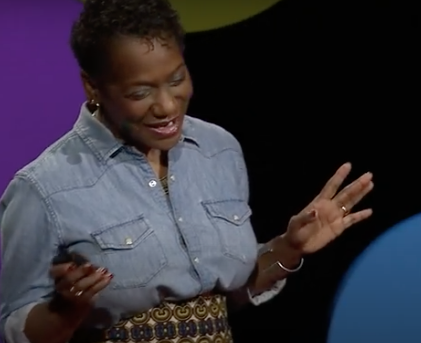Burned Out, and Wanting to Talk About It
September 27, 2022
Early in my career, a mentor said, "There is no such thing as a speechwriting emergency." And, I used to believe it.
When I sat down in a conference room in San Francisco to listen to a presentation on executive communications, I wasn’t expecting to take it … so personally. As researcher Sharon McIntosh walked members of the Executive Communication Council through the highlights of a major new study called the Executive Communication Standard—I wasn’t sure if I felt attacked or seen.
She started with a timeline of the crises that have defined the past two and a half years: the pandemic, the murder of George Floyd, the racial reckoning, the wave of Asian hate crimes, the storming of the Capitol on January 6th, Russia invading Ukraine.
Listening to the list brought back my own memories of each event. Trying to navigate those dates personally and professionally, musing on the right advice to give an executive about whether to speak, and if so what to stay, while homeschooling my four-year-old and keeping my toddler alive. There were so many evenings when I had my phone wedged between my shoulder and my ear speaking to a colleague as I tried to get chicken nuggets in the oven as a small person clutched my ankle and wailed that they were hungry. There were days when I felt truly desperate for some time and space to myself, but the deadlines and the speeches and the emails and the crises just kept coming.
Then came the real talk; not just the dates of crises, but what Sharon had learned about the people who do jobs like mine: we’re burnt out but we love the adrenaline rush, we are obsessed with what we do (it’s almost a calling) but we can’t carry on much longer, and we need a break. It was a revelation and validation to know that I’m not alone; many of my peers feel the same.
And even though vaccines have made COVID less deadly and my children are back in school, recent crises have felt increasingly personal. When Politico leaked the Supreme Court memo indicating that Roe v Wade would be repealed, it took me back to my own pregnancies. In 2015, on a work trip to Florida, I started bleeding: I was 14 weeks along with my first baby and terrified. I went to the hospital, waited for hours for an ultrasound and listened as a doctor and nurse fought about who would wave the wand over my belly. Neither wanted the task. Luckily, everything was ok and the tiny nugget on the screen is now a happy-go-lucky six-year-old. In the US, where your employer has a lot to do with your healthcare, the personal is both political and professional. I have thought long and hard if I could travel for work while pregnant now to certain states and feel safe. I still don’t have an answer.
And then Uvalde happened. And it took everything to look at my son without imagining him in that dreadful scene. Dropping him off at school the next morning was almost unbearable. I cried in the car and I nearly had a panic attack when a few days later I saw children filing out of the school doors. It was just for a trip to a local park, but my head went to the darkest places after hours spent watching the news. I sent a note to my team to say it’s okay not to be okay and was flooded with replies.
Early in my career, a mentor said to me: “There’s no such thing as a speechwriting emergency.” And, I used to believe it. Keynotes were planned months in advance, white papers were drafted weeks ahead of publication, and LinkedIn posts were marked on a carefully orchestrated editorial calendar. And this was when I worked in specialist insurance, an industry dedicated to responding to crises! A hurricane … we took it in our stride, a plane fell out of the sky … I knew who to call, a flood of biblical proportions … I had the number for a lifeboat.
But these days I’m constantly figuring out what to say at a time when people have grown weary of corporate “thoughts and prayers.” And even though many of the crises have felt personal, the funny thing about speechwriting is you’re not meant to have a voice. But work and motherhood over the past two and a half years have taken their toll and I have an opinion about it.
If ever there was a speechwriting emergency, this is it. It’s not a deadline or a word count or a last minute request, it’s death by a thousand cuts. Our communicators are burned out and I want to talk about it.
Felicity has been writing speeches and managing the executive communications of CEOs in finance for a decade, including for the CEO of Lloyd’s of London two Federal Reserve Presidents. She now manages executive communications for the CEO of BlackRock. She hails from London, but home is Weehawken, NJ, where she lives with her husband, her two children, and a black cat called Minton.




